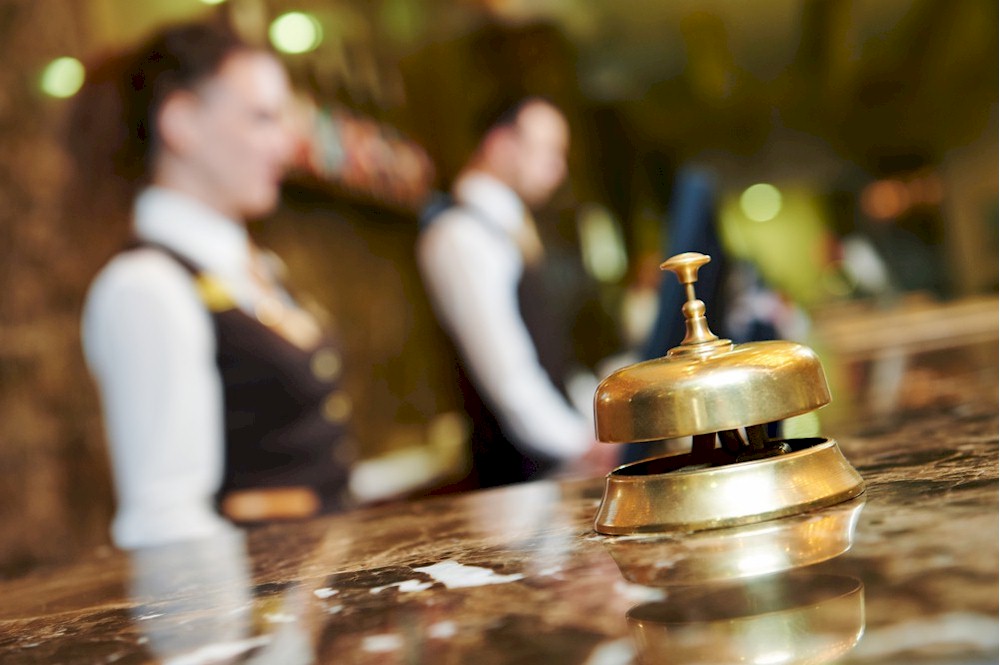
The good news for those hotels that host Group Meetings and Conferences is that there is good news. The effects of the Great Recession have mostly worn off and corporations are now investing again in training and development, which translates into a robust booking pace. And though demand is strong, there are new developments within this sector that must be addressed in order to effectively compete, and to meet the expectations of conference attendees. First, and perhaps foremost, is wireless communications. According to a recent survey, the average participant arrives at a conference with three mobile devices in tow so it is imperative that a WiFi network be free, fast and reliable. And though this is the #1 issue for planning professionals in the meetings business today, there are numerous other concerns. There is a growing trend to incorporate out-of-the-ordinary occasions into the Group Meeting experience. Some examples of this might include partnering with local venues such as wineries; natural and historic wonders; intriguing adventure resources; and unique off-site reception and dinner venues - all of which might be a factor in deciding where to locate for a conference. Team-building activities are also making a resurgence. Some groups are looking for unusual ways to motivate, inspire, and build camaraderie, which might include a volunteerism initiative, like building bikes for kids in the local community. Of course, food and beverage options are also important and like the trend in hotel restaurants, planners want a variety of healthy choices to be available for meal menus and refreshment breaks. They are looking for food and beverages that will "perk up" their participants, not lull them into lethargy. The September Hotel Business Review will examine what some hotels are doing to facilitate this segment of their business in order to meet the expectations of group planners and attendees.



 The good news for those hotels that host Group Meetings and Conferences is that there is good news. The effects of the Great Recession have mostly worn off and corporations are now investing again in training and development, which translates into a robust booking pace. And though demand is strong, there are new developments within this sector that must be addressed in order to effectively compete, and to meet the expectations of conference attendees. First, and perhaps foremost, is wireless communications. According to a recent survey, the average participant arrives at a conference with three mobile devices in tow so it is imperative that a WiFi network be free, fast and reliable. And though this is the #1 issue for planning professionals in the meetings business today, there are numerous other concerns. There is a growing trend to incorporate out-of-the-ordinary occasions into the Group Meeting experience. Some examples of this might include partnering with local venues such as wineries; natural and historic wonders; intriguing adventure resources; and unique off-site reception and dinner venues - all of which might be a factor in deciding where to locate for a conference. Team-building activities are also making a resurgence. Some groups are looking for unusual ways to motivate, inspire, and build camaraderie, which might include a volunteerism initiative, like building bikes for kids in the local community. Of course, food and beverage options are also important and like the trend in hotel restaurants, planners want a variety of healthy choices to be available for meal menus and refreshment breaks. They are looking for food and beverages that will "perk up" their participants, not lull them into lethargy. The September Hotel Business Review will examine what some hotels are doing to facilitate this segment of their business in order to meet the expectations of group planners and attendees.
The good news for those hotels that host Group Meetings and Conferences is that there is good news. The effects of the Great Recession have mostly worn off and corporations are now investing again in training and development, which translates into a robust booking pace. And though demand is strong, there are new developments within this sector that must be addressed in order to effectively compete, and to meet the expectations of conference attendees. First, and perhaps foremost, is wireless communications. According to a recent survey, the average participant arrives at a conference with three mobile devices in tow so it is imperative that a WiFi network be free, fast and reliable. And though this is the #1 issue for planning professionals in the meetings business today, there are numerous other concerns. There is a growing trend to incorporate out-of-the-ordinary occasions into the Group Meeting experience. Some examples of this might include partnering with local venues such as wineries; natural and historic wonders; intriguing adventure resources; and unique off-site reception and dinner venues - all of which might be a factor in deciding where to locate for a conference. Team-building activities are also making a resurgence. Some groups are looking for unusual ways to motivate, inspire, and build camaraderie, which might include a volunteerism initiative, like building bikes for kids in the local community. Of course, food and beverage options are also important and like the trend in hotel restaurants, planners want a variety of healthy choices to be available for meal menus and refreshment breaks. They are looking for food and beverages that will "perk up" their participants, not lull them into lethargy. The September Hotel Business Review will examine what some hotels are doing to facilitate this segment of their business in order to meet the expectations of group planners and attendees.





















